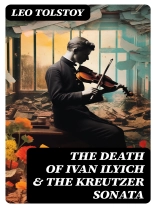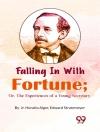In ‘The Death of Ivan Ilyich’ and ‘The Kreutzer Sonata, ‘ Leo Tolstoy explores the profound themes of mortality, existential despair, and the complexities of human relationships. While the former exists as a poignant novella revealing the stark confrontation between life and death, emphasizing the futility of materialism, the latter takes the form of a powerful novella that critiques bourgeois marriage and explores moral dilemmas surrounding love and sexuality. Tolstoy’s succinct prose combines realism with deep philosophical inquiries, painting psychological portraits steeped in the author’s introspective style. These works reflect the social context of 19th-century Russia, as the author scrutinizes the moral decay of society amidst the quest for authenticity and truth. Leo Tolstoy, a titan of literature and philosophy, was inspired by his own experiences with existential crises and spiraling disillusionment with the superficial nature of contemporary society. After personal tragedies and spiritual awakenings, Tolstoy distilled his observations into narrative form, compelling readers to confront their own lives. His moral reflections were shaped by the tumultuous transformations of Russian society and his internal battles between faith, love, and duty. Both novellas remain essential reading for anyone engaged with the human condition, as they invite introspection about life, love, and death. Engaging with Tolstoy’s works is not merely an academic exercise but a profound journey towards understanding one’s own existence and moral choices.
เกี่ยวกับผู้แต่ง
Count Lev Nikolayevich Tolstoy, more commonly known as Leo Tolstoy, was a Russian writer who is regarded as one of the greatest authors of all time (Rancour-Laferriere, 2016). Born to an aristocratic Russian family in 1828, he is best known for his epic novels ‘War and Peace’ (1869) and ‘Anna Karenina’ (1877), but his shorter works are also highly acclaimed for their profound insights into human suffering and morality. ‘The Death of Ivan Ilyich’ (1886), one of Tolstoy’s most notable short stories, offers a piercing examination of the life of a dying bureaucrat, exploring themes of existential despair and spiritual awakening (Maude, A. & Maude, L., 1922). Similarly, ‘The Kreutzer Sonata’ (1889) is a controversial novella that delves into the troubled psyche of a man reflecting on his turbulent marriage and the nature of sexual jealousy; it is a work that continues to provoke debates on gender relations and moral ethics (Maude, A. & Maude, 1922). Throughout his literary career, Tolstoy’s works were characterized by a distinct narrative style that combined complex character development with clear moral questions. Moreover, his later writings reflect his growing interest in religion and nonviolent resistance, influencing figures such as Gandhi and Martin Luther King Jr. Beyond literature, Tolstoy’s philosophical essays and letters show his deep commitment to anarchist principles and social reform. He died in 1910, leaving behind a legacy that continues to influence and resonate in the world of literature and beyond.












